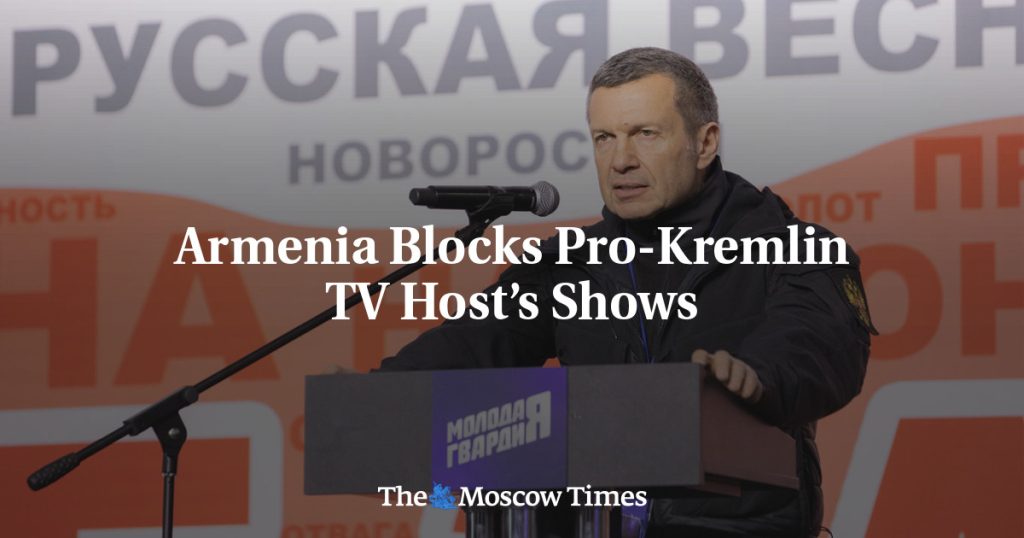Armenia has taken the decision to block pro-Kremlin Russian TV host Vladimir Solovyov’s shows on its territory due to continuous violations. The Television and Radio Broadcasting Network of Armenia made the announcement citing a Russian-Armenian mass telecommunications cooperation agreement. The shows “Evening With Vladimir Solovyov” and “Sunday Evening With Vladimir Solovyov” were pulled off the air based on this agreement, with violations related to articles 5 and 6. Article 5 prohibits offensive content against peoples and national values, as well as interference in election campaigns and domestic political life. Article 6 requires respect for rules during national holidays and commemorations, as well as during martial law and states of emergency.
Russia’s Foreign Minister Sergei Lavrov accused Armenia of attempting to damage the already strained ties between the two countries as a reaction to the blocking of Solovyov’s shows. Armenia, a traditional ally of Moscow, has been growing increasingly frustrated with Russia over its lack of intervention in Azerbaijan’s offensive to retake Nagorno-Karabakh. Yerevan has even raised the possibility of leaving the Collective Security Treaty Organization (CSTO), a security bloc led by Moscow that includes several other former Soviet countries. Armenia has been seeking new security guarantees, leading to partnerships with Western countries, particularly France and the United States.
Armenia’s decision to block Solovyov’s shows has been linked to violations of the telecommunications cooperation agreement between Russia and Armenia. This move has further strained relations between the two countries, with accusations from Russia’s Foreign Minister Sergei Lavrov of Armenia trying to damage ties. Armenia’s discontent with Russia has been growing due to Moscow’s perceived lack of support during Azerbaijan’s offensive in Nagorno-Karabakh. Yerevan’s consideration of leaving the CSTO and seeking new security partnerships with Western countries like France and the United States reflects its desire to reduce its reliance on Moscow and pursue alternative alliances.
The specific violations committed by Solovyov’s programs have not been detailed by the Television and Radio Broadcasting Network of Armenia. However, they are believed to relate to offensive content against peoples and national values, interference in election campaigns and domestic political life, as well as disrespect for rules during national holidays and commemorations, martial law, and states of emergency. Russia’s accusations of Armenia trying to sabotage relations between the two countries indicate the seriousness of the situation. Armenia’s pursuit of new security guarantees with Western countries highlights its desire to shift away from its traditional alliance with Russia and explore alternative options for its security and defense needs.
The blocking of Solovyov’s shows in Armenia is just one aspect of the growing tension between Armenia and Russia, as Yerevan seeks to assert its independence and pursue new security partnerships. The decision to cut ties with Solovyov reflects Armenia’s commitment to upholding its national values and independence in the face of pressure from Moscow. As Armenia navigates its relationships with Russia and the Western countries it is seeking partnerships with, the future of its foreign policy and security initiatives remains uncertain. The repercussions of these developments on the wider region and international relations will continue to unfold as Armenia redefines its approach to diplomacy and security.















